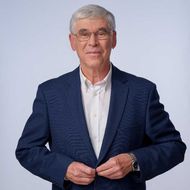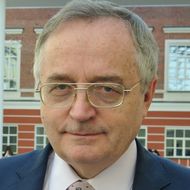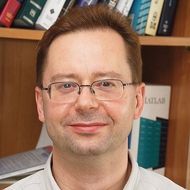Ksenia Kushner graduated from the Master’s Programme at ICEF in 2015, and later that year joined the team at XENON Capital Partners, one of the leading financial investment consultancies.
.jpg) Ksenia, you received your BSc in World Economics from the HSE – why did you then decide to continue your studies on the ICEF Master’s Programme?
Ksenia, you received your BSc in World Economics from the HSE – why did you then decide to continue your studies on the ICEF Master’s Programme?
Towards the end of the Bachelor’s I had already realized that I wanted to work in investments. That meant that a big factor in favour of ICEF’s educational programmes was the large number of practical courses in finance that were available, alongside electives that would be useful in real life.
You chose Economics straight after school – was it easy to settle on a subject?
It wasn’t hard – in school I really liked Maths and English, so by the last years I had basically decided what I wanted to do next. Then at the end of the Bachelor’s, it became clear that I wanted to continue with a Master’s. I think I’m probably wired to plan things out in advance if possible. I applied to the top institutions in Moscow, and got into them all, but I went for the HSE. I was accepted thanks to my exam results – I’m not from Moscow, I went to school in Syzran, Samara. In fact when I was choosing a subject, I looked for advice from my parents, but they didn’t want to influence my decision. I had to work out my path in life for myself – which is what happened.
In April 2015 you joined the team at XENON Capital Partners – what’s your role there?
Our team act as consultants for both Russian and foreign clients, advising them on carrying out strategic transactions in mergers and acquisitions, capital raising and investment projects. The role of an analyst is to carry out financial analysis of a company, and to prepare presentations that explain various stages of the transaction. The work is exactly what I already knew I wanted to do while I was still a student at ICEF.
How were you able to know that before you had tried particularly hard to work out what you wanted to do?
Ah – well in order to work it out, I started going to the Investment Banking Club at MSU in my last year of the Bachelor’s – it was organized by professionals working in that field. The club puts on master classes which focus on cases studies from the worlds of corporate finance and the financial markets. At HSE there’s also a great financial society called «Keystone» - I also went there. The guys at Keystone were always inviting leading bankers who shared their experiences with us. Spending time at all these events helped me to figure out exactly what I wanted to do after university, but I quickly realized that I would have to do something myself to gain some useful experience. That was why last year I was part of the ICEF team in the international competition run by the CFA – the Institute Research Challenge. Our team won the Russian leg of the contest. I think that experience was a defining one in my career.
Before you joined XENON you did an internship at the Investment Banking division of Credit Suisse…
Yes – I worked in the research department, specializing in the transport and metallurgy sectors. Usually as a research analyst you carry out analysis within specific sectors, but working at an investment banking unit you can get involved in projects in various different sectors at the same time. XENON has projects in the energy sector, in media, and maybe in others too. I just love the possibility of so much variety, it’s so interesting and allows you to gain an understanding of various different businesses.
How did you get the internship?
After the first year of my masters I submitted an application and my CV for the Summer Internship at Credit Suisse. You have to apply for a summer internship the previous autumn – any later is too late. The banks have very strict deadlines. ICEF has a Career Centre where they always display announcements about different upcoming internships. As well as that, I was actively monitoring the bank’s websites, looking to see whether they were recruiting interns. A lot of banks work like that – you can submit an application and CV directly through their site. You should get someone to look over your CV before you send it. You also have to write a cover letter, a few mini-essays and take some tests, which usually assess your numerical and verbal reasoning. After that stage they start examining your application, and if they’re impressed you’ll be invited for interview.
So what do you need to do to perform well at interview?
The key thing is that you have to prepare for them, and prepare well. Usually, interviews at banks are made up of two parts. The first is a ‘fit’ interview, which is a collection of questions that evaluate the personal qualities of the candidate. For example, they might ask how you would behave in this or that scenario. You have to know your background well and be able to talk about yourself. It’s a good idea to think in advance about what you can say about yourself, so that questions that are fairly similar don’t leave you stumped after the first answer. In the second part of an interview, which is testing your theoretical knowledge, an employer might ask you to solve a problem. Here, I’d say it’s more important to show your ability to reason and think, and not just memorise material or projects from your course. And that’s one of the main skills that ICEF gives you.
The technical questions are clear – I would say they aren’t the trickiest part. Sometimes it can be harder to answer questions about yourself – your negative qualities, or where you see yourself in five years…
Very true. I think a very common mistake is that people start to answer those questions with whatever they think the employer wants to hear. But in reality, that doesn’t work. Obviously you can embellish things a little, but if you aren’t being honest, it’s clear – they see it in your eyes. That’s why I wouldn’t advise lying – it’s far better to be truthful, because even if you do manage to lie your way through the interview and convince them, you then have to work together with them in a team, and spend most of your time with them. And then pretty soon, either you’d realized that they just aren’t your type of people, or the team will feel that you aren’t one of theirs. That’s why I think it’s actually better to say what you really think. In the next five years I want to be working in investment banking – that’s true – so that’s what I said at the interview.
.jpg) Work takes up a lot of time – do you still manage to keep up your hobbies?
Work takes up a lot of time – do you still manage to keep up your hobbies?
I try to find time for everything – for work and play. I think that the secret of success is managing your time correctly, efficiency, and spending time on whatever you really enjoy, whether that’s work or fun. I still manage to play sport.
Which sports?
I go to the gym and I run. In the summer I had a very intensive project at work, but I found the time to run the Moscow half-marathon (without training) at Luzhniki. It was the first time I’d run further than 10km. I’m proud of having run 21 km without ever having had to walk.
And what about your passion for Spanish?
That’s from the time of my Bachelor’s. I had two languages – English and Spanish. At school I had studied German, and considered continuing with it, but in the end I chose Spanish. It’s the second most widely-spoken language after English, so I don’t regret it. After my second year, I went to volunteer in Spain for two months in the summer with some course-mates. There were two parts to the programme – in the first month we had to attend lessons at a language school, and in the second we did community work. But it all went a bit pear-shaped. Before the trip we had done telephone interviews, when they tested our proficiency in Spanish and then immediately divided us for the work. I ended up in the Department of Tourism in the small town of Castillon. My job was to ask tourists whether they liked relaxing there, whether they were happy with the services in public areas, and so on, and also to suggest where they in the city they might want to go. At first it was a little weird that I – who had been in Spain all of two days – was helping people with their questions and telling them what to go see, but eventually I got into it and found it really interesting. And then in the second month, they sent us to the language school anyway, to perfect our skills. It all turned out a little oddly.
Anastasia Chumak, exclusively for ICEF HSE
Translated by Joseph Gamse




.jpg)
.jpg)